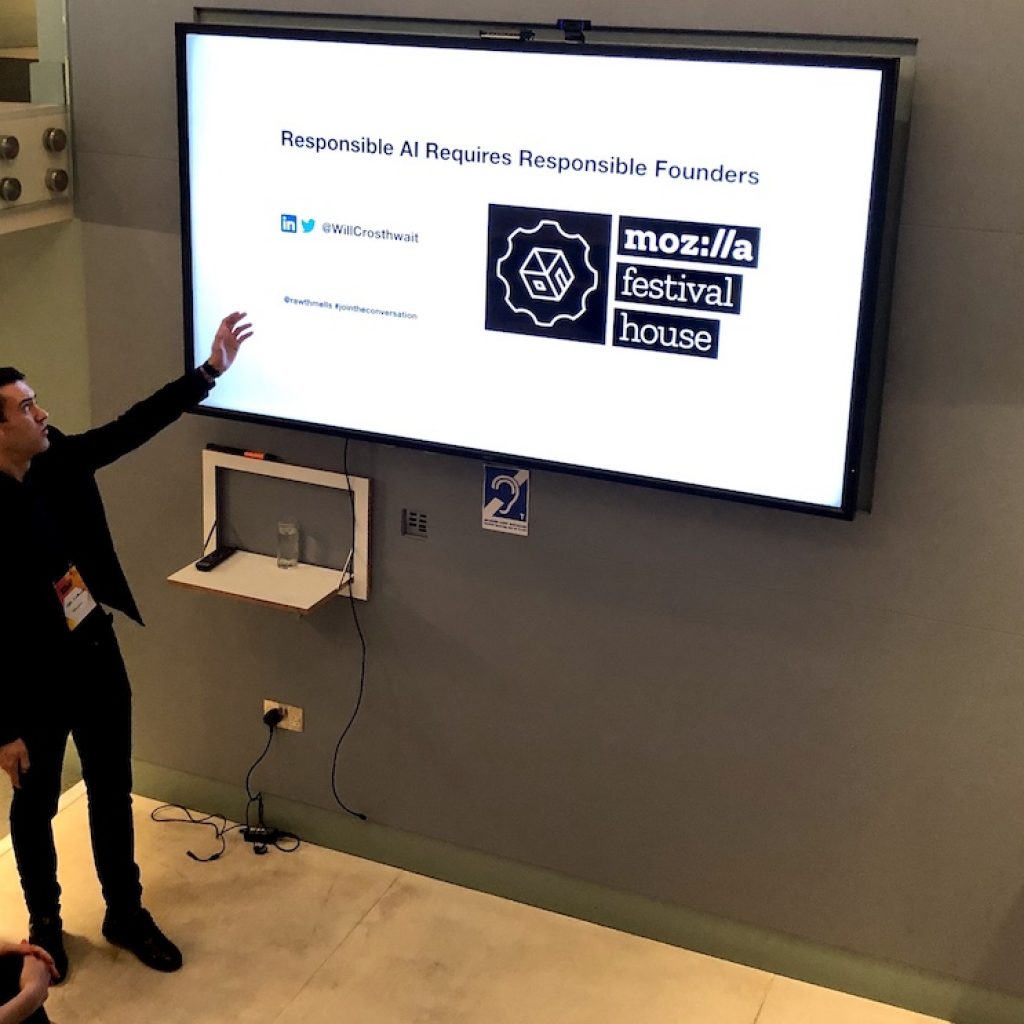Description
A 30 minute call, where I will call you at the arranged time. Please include an overview of your question when booking.
Some of the most talked about areas within artificial intelligence are ethics and data bias. This ranges from the integrity of data sources through to media-favourite big picture questions, like will general intelligence ever come about?
At a recent talk I gave a the Royal Society of Arts entitled “Why responsible AI requires responsible founders”, one of the primary concerns of other speakers was the rights of individuals who were having their personal data processed by algorithms without their consent. Recent examples of police forces and private companies deploying facial recognition were frequently raised.
This has been a core focus throughout the House of Lords Select Committee on AI and the All Party Parliamentary Group on AI. The Lords highlighted data bias within my written evidence to the committee, and there are many examples where an over-reliance on algorithms has led to discrimination of false results.
Fortunately, there are many emerging solutions and workflows that can prevent data bias and provide answers to many of the ethical challenges raised by artificial intelligence and the data required to train models.
If you’d like to discuss the ethics of artificial intelligence or data bias then use the booking form to schedule a time.

From: £167.00
A 30 minute call, where I will call you at the arranged time. Please include an overview of your question when booking.
A 30 minute call, where I will call you at the arranged time. Please include an overview of your question when booking.

From: £250.00
A 60 minute meeting, where I will meet you at a place of your choosing in London at the arranged time. Please include an overview of your question when booking.
A 60 minute meeting, where I will meet you at a place of your choosing in London at the arranged time. Please include an overview of your question when booking.

There are numerous ethical concerns surrounding the use of artificial intelligence. These come in practical forms regarding fairness or transparency, through to more philosophical questions around decision-making and even what it means to be human.
Ethical concerns around fairness tend to centre around the consent, the use of data and access to services. There are a myriad of responses to each of these concerns and the best organisations have plans of actions to respond and lead in each of these areas.
We are likely to face a growing number of philosophical questions in our pursuit of artificial intelligence. MIT’s Moral Machine allows us to make decisions for a driverless car, and gathered 40 million decisions in ten languages from millions of people in 233 countries and territories. The published paper found that cross-cultural ethics differ on the basis of economics, cultures, and location.

Data Bias is an area that is receiving increased focus as attention turns to both the data sets being used to train artificial intelligence models, and the in-built bias of the creators themselves.
I’ve often heard it being said that artificial intelligence introduces a bias into data sets, but a recent report by McKinsey entitled “Tackling bias in artificial intelligence (and in humans)” has cast doubt on this. It’s now accepted that companies and organisations that are using data sets to train artificial intelligence actually root out human bias that is in the data, regardless of AI being deployed or not.
By preparing data for use in artificial intelligence models, organisations have the ability to transform the insights they make by creating more accurate forecasts and models.